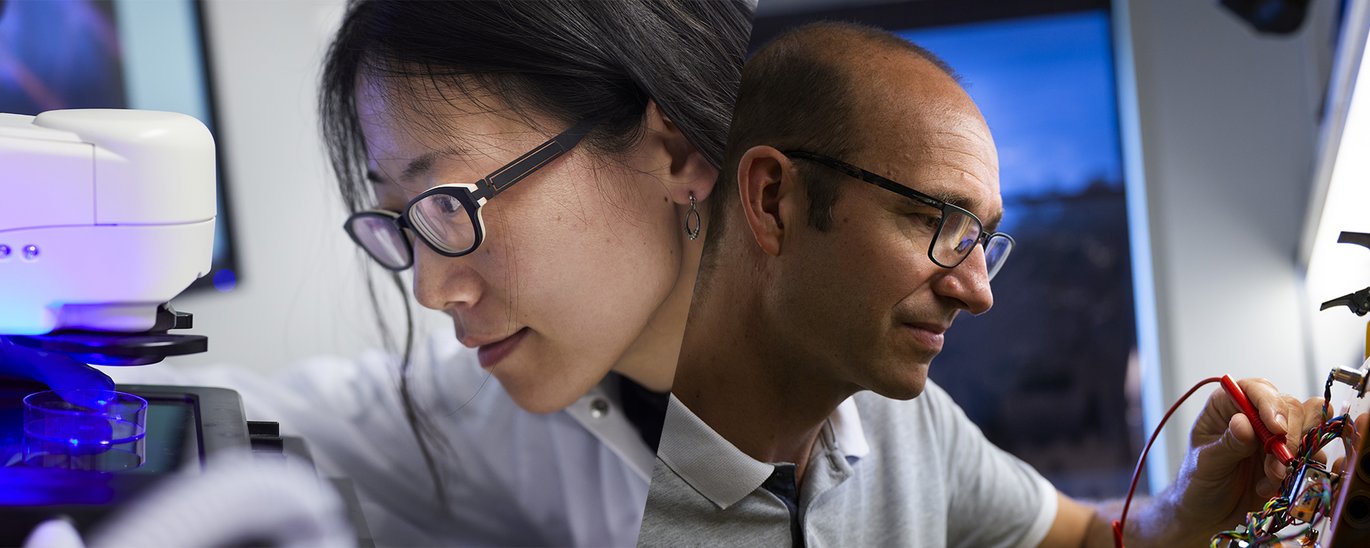Groundwater measurements and future medical electronics in focus in new research grants
The Novo Nordisk Foundation has awarded DKK 6 million to new technical research projects at Aarhus University. The grants are to “support basic research at the highest international level”.

Associate Professor Menglin Chen from the Department of Biological and Chemical Engineering and Associate Professor Jakob Juul Larsen from the Department of Electrical and Computer Engineering have each received DKK 3 million in research grants from the Novo Nordisk Foundation (NNF) for new technical research in the fields of medical electronics and groundwater measurements.
Menglin Chen has received her grant for the project Bio-sourced polymer-based 3D nanogenerators as implantable electronics.
The project looks into the problem of increasing volumes of electronic waste (e-waste) and the rapidly increasing global demand for electronic medical devices. E-waste is regarded as the fastest-growing waste stream in the world, with more than 50 million tonnes of waste being generated annually, while medical technology – which is dependent on electronic equipment – is in rapid development.
"The project aims to develop biodegradable nano-generators that can convert mechanical energy into electrical energy for implantable electronics for regenerative medicine. We're looking at several different bio-sourced biodegradable polymers that we hope can meet the urgent need for the next generation sustainable power source using piezoelectric and/or triboelectrical properties," she says.
Jakob Juul Larsen has been working with the Department of Geoscience for many years to further develop nuclear magnetic resonance (NMR) technology, which is a surface-based, non-invasive technology for mapping hydrogeological and geological structures in the subsurface.
Groundwater is a critical freshwater source for many billions of people, and fast, reliable and non-invasive measurements of groundwater resources are much sought after. However, NMR technology is extremely sensitive to electromagnetic noise from the surroundings, and therefore deployment of the method in practice has been rather limited.
A recent breakthrough by the research group from the Department of Geoscience and the Department of Electrical and Computer Engineering has demonstrated how the measurement method can be improved dramatically via long sequences of NMR excitation pulses (pulse trains).
"Our breakthrough has radically improved NMR measurements and made the technology much more useful, but we’ve far from exhausted the possibilities for further improvements. In our new project, we’ll examine whether pulse trains based on adiabatic pulses can improve the signal-noise ratio even more, and at the same time make measured signals more sensitive to the surroundings in which the groundwater is located," says Associate Professor Jakob Juul Larsen about the project named Groundwater mapping with adiabatic pulse steady-state surface NMR.
Both projects have received funding from the Novo Nordisk Foundation Project Grants in the Natural and Technical Sciences programme. The aim of the programme is to promote Danish basic research at the highest international level within natural sciences and technical fields, in particular projects with potential interdisciplinary applications in life sciences, health sciences or within sustainability.
The Novo Nordisk Foundation has awarded funding to a total of 23 projects, nine of which are at Aarhus University.
Contact
Associate Professor Menglin Chen
Department of Biological and Chemical Engineering, Aarhus University
Email: menglin@bce.au.dk
Tel.: +45 20289506
Associate Professor Jakob Juul Larsen
Department of Electrical and Computer Engineering, Aarhus University
Email: jjl@ece.au.dk
Tel.: +45 41893273
